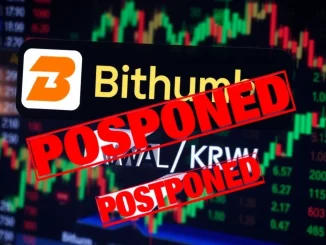
Get ready for a significant step in South Korea’s digital finance journey! The Bank of Korea (BOK) is taking crucial action regarding the future of money, specifically focusing on the potential South Korea CBDC.
Why is This BOK CBDC Meeting So Important?
According to local reports from Financial News, BOK Governor Rhee Chang-yong is expanding discussions on central bank digital currency (CBDC) by meeting directly with the leaders of the country’s six major banks. This isn’t just a casual chat; it’s a high-level engagement scheduled for May 26.
Bringing together the central bank and major commercial banks is essential for any potential transition to digital forms of money. Commercial banks play a vital role in the financial ecosystem, and their involvement and understanding are key to successful implementation or integration of a BOK CBDC or related digital assets.
What is Project Agorá and Why is it on the Agenda?
A key topic for discussion is the Bank for International Settlements’ (BIS) initiative known as Project Agorá. This is a global, public-private collaboration looking into how tokenized commercial bank deposits and institutional CBDCs could function together.
Think of it as exploring a new digital infrastructure where wholesale transactions between banks and other financial institutions could happen more efficiently using distributed ledger technology (DLT). Project Agorá aims to connect central bank money (institutional CBDC) and commercial bank money (tokenized deposits) on a unified ledger, potentially reducing costs and improving speed and transparency for large-value payments and settlements.
Addressing Stablecoins South Korea Developments
Beyond the global scope of Project Agorá, Governor Rhee will also address domestic developments concerning Stablecoins South Korea. Stablecoins, cryptocurrencies designed to maintain a stable value (often pegged to a fiat currency like the Korean Won or USD), have seen increasing use and regulatory scrutiny worldwide.
Discussing stablecoins with major banks is critical for several reasons:
- Regulatory Clarity: Banks need to understand the current and future regulatory landscape for stablecoins.
- Risk Assessment: Evaluating the potential risks stablecoins pose to financial stability.
- Integration: Exploring how stablecoins might interact with the traditional banking system or a future Digital Won.
- Market Impact: Understanding their growing presence and impact on payment systems.
These discussions signal the BOK’s proactive approach to understanding and potentially incorporating or regulating these digital assets within the national financial framework.
Implications for a Potential Digital Won
While the meeting focuses on institutional CBDCs via Project Agorá and domestic stablecoins, these topics are intrinsically linked to the broader conversation about a potential Digital Won. Exploring institutional CBDC use cases through initiatives like Agorá can inform the design and necessity of a wholesale digital currency.
Similarly, understanding and regulating stablecoins is crucial because they represent a form of private digital money that could compete with or complement a central bank-issued Digital Won. The BOK has been researching CBDC for some time, conducting trials and simulations. This meeting with bank heads is a logical next step to involve key stakeholders who would be instrumental in the distribution and operation of any future digital currency system.
Summary: The upcoming meeting between BOK Governor Rhee Chang-yong and the heads of South Korea’s major banks marks a pivotal moment in the nation’s exploration of digital currencies. By addressing global initiatives like Project Agorá and domestic stablecoin issues, the BOK is actively engaging with the financial sector to shape the future of money, laying crucial groundwork for potential advancements related to a South Korea CBDC and the broader digital asset landscape.



